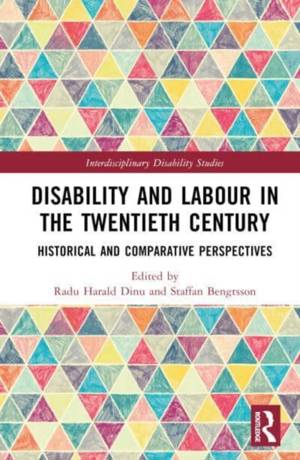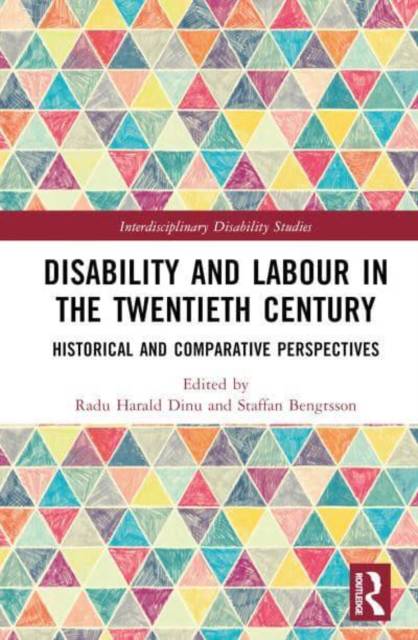
- Afhalen na 1 uur in een winkel met voorraad
- Gratis thuislevering in België vanaf € 30
- Ruim aanbod met 7 miljoen producten
- Afhalen na 1 uur in een winkel met voorraad
- Gratis thuislevering in België vanaf € 30
- Ruim aanbod met 7 miljoen producten
Disability and Labour in the Twentieth Century
Historical and Comparative Perspectives
Omschrijving
This volume puts disability and labour at the centre of historical enquiry. It offers fresh perspectives on the history of disability and labour in the twentieth century and highlights the need to address the topic beyond regional boundaries. Bringing together historians and disability scholars from a variety of disciplines and regions, the chapters investigate various historical settings, ranging from work cooperatives to disability associations and informal workplaces, and analyse multiple meanings of labour in different political and economic systems through the lens of disability.
The book's contributors demonstrate that the nexus between labour and disability in modern, industrialised societies resists easy generalisations, as marginalisation and integration were often two sides of the same coin: While the experience of many disabled people has been marked by exclusion from mainstream production, labour also became a vehicle for integration and emancipation. Addressing one of the research gaps of the disability history field, which has long been dominated by British and North American perspectives, the book sheds light on less-studied examples from Scandinavian countries and Eastern Europe including Czechoslovakia, Poland, the Soviet Union, Bulgaria and Romania.
Cutting across national, cultural and class divides the volume provides a springboard for reflections on common experiences of disability and labour during the twentieth century. It will be of interest to all scholars and students working in the field of disability studies, sociology and labour history.
Specificaties
Betrokkenen
- Uitgeverij:
Inhoud
- Aantal bladzijden:
- 238
- Taal:
- Engels
- Reeks:
Eigenschappen
- Productcode (EAN):
- 9781032327532
- Verschijningsdatum:
- 30/12/2022
- Uitvoering:
- Hardcover
- Formaat:
- Genaaid
- Afmetingen:
- 156 mm x 233 mm
- Gewicht:
- 425 g

Alleen bij Standaard Boekhandel
Beoordelingen
We publiceren alleen reviews die voldoen aan de voorwaarden voor reviews. Bekijk onze voorwaarden voor reviews.










